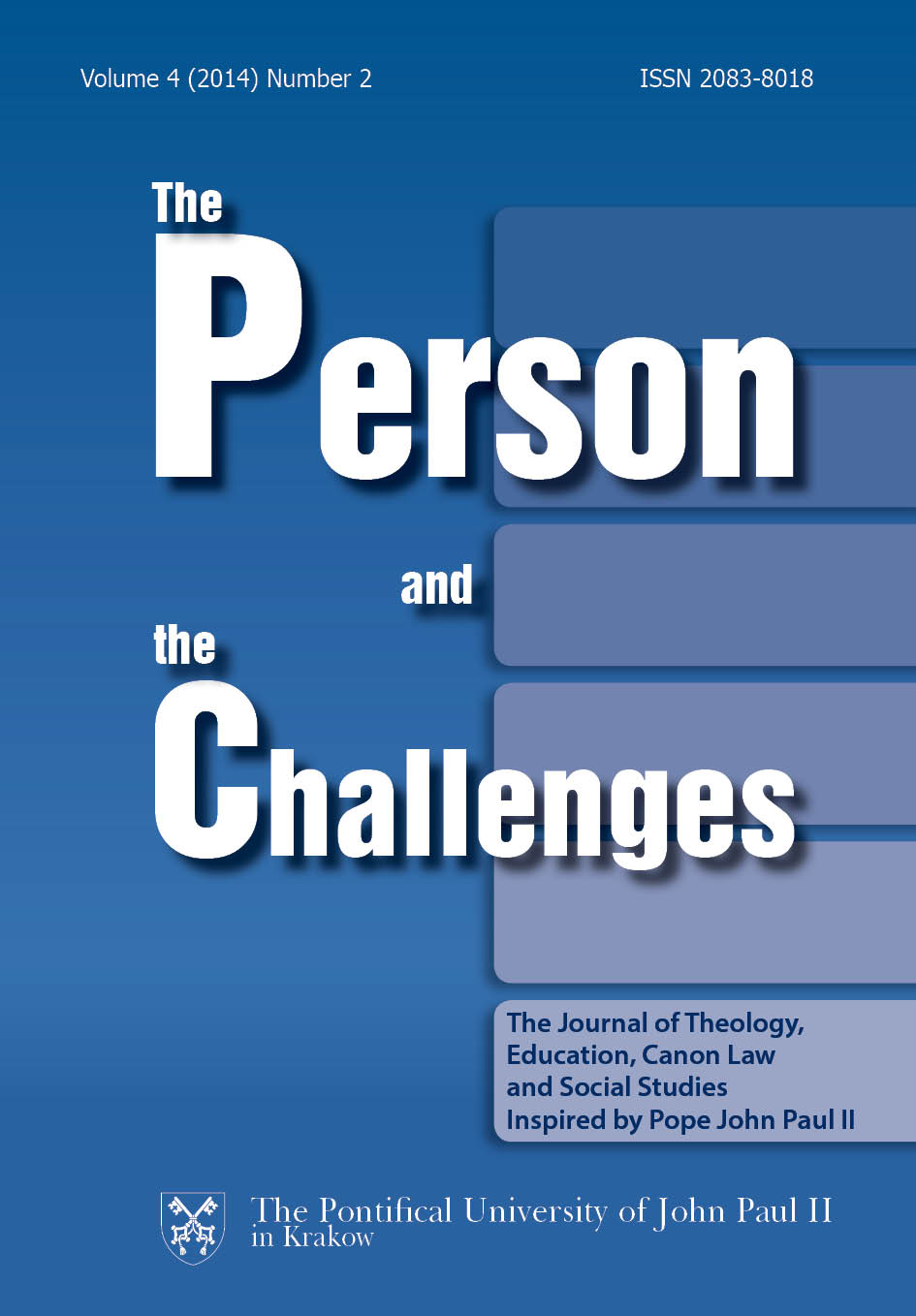The Relationship between God and Israel as a Biblical Portrayal of the Bond between God and the Person in the Light of Deuteronomy 1:1–4:43
DOI:
https://doi.org/10.15633/pch.658Słowa kluczowe:
God-Israel relationship, Deuteronomy, law, faithfulness, idolatry, dābaqAbstrakt
As the fifth book of the Pentateuch, Deuteronomy depicts a panoramic synthesis of the entire history of Israel. Consequently, its message is very important for Old Testament theology. Deuteronomy had its origin as a book of God’s Law, communicated to the Israelites by Moses, giving them in a certain way the best guidance possible through the course of their history. The Book of Deuteronomy raises important issues in the life and faith of the Israelites just as they prepare to enter the land of promise. The most important of them is the relationship between God and Israel; that direct connection of Israel’s obedience to the divine law that should be treated as ‘rule of life’ in the Promised Land. Moses’ first address to Israel (Deut 1:1–4:43) allows us to capture generally the essential elements that influence both positively and negatively on forming the vital relationship with God: the only One who can provide for every person a happy life – lived to the full.
Bibliografia
Brettler M. Z., How to read the Bible, Philadelphia 2006, The Jewish Publication Society.
The Brown – Driver – Briggs Hebrew and English lexicon: with an appendix containing the biblical Aramaic, F. Brown, S. Driver, C. Briggs (eds.), Peabody (MA) (twelfth printing) 2008, Hendrickson Publishers, Inc.
Brueggemann W., An introduction to the Old Testament: the canon and Christian imagination, Louisville (KY) 2003, Westminster John Knox Press.
Campbell A. F., O’Brien M. A., Unfolding the Deuteronomistic History: origins, upgrades, present text, Minneapolis (MN) 2000, Fortress Press.
Childs B. S., Old Testament Theology in a Canonical Context, Philadelphia 1989, Fortress Press.
Childs B. S., Introduction to the Old Testament as Scripture, Philadelphia 2011, Fortress Press.
Chamisza Chumsze Tora – Chumasz Pardes Lauder. Przekład Pięcioksięgu z języka hebrajskiego z uwzględnieniem Tory Ustnej opatrzony wyborem komentarzy Rabinów oraz hebrajski tekst komentarza Rasziego i Haftary z błogosławieństwami. Księga Piąta Dewarim (Księga Powtórzonego Prawa), oprac. pod kierownictwem S. Pecarica, tłum. S. Pecaric, Kraków 2006, The Ronald S. Lauder Foundation, Edycja Pardes Lauder.
Jensen J., God’s Word to Israel, Collegeville (MN), The Liturgical Press.
Mayes A. D. H., Deuteronomy (The New Century Bible Commentary), Grand Rapids (MI) 1991, Wm.B. Eerdmans Publishing Company.
Polzin R., Deuteronomy, in: The literary guide to the Bible, R. Alter, F. Kermode (eds.), Cambridge (MA) 1990, Harvard University Press, p. 92–101.
Rose M., Deutéronome, in: Introduction à l’Ancien Testament, T. Römer, J. D. Macchi, Ch. Nihan (eds.), Genève 2009, Labor et Fides, p. 294–331.
Ska J. L., Introduction to reading the Pentateuch, Winona Lake (IN) 2006, Eisenbrauns.
Ska J. L., Les énigmes du passé. Histoire d’Israël et récit biblique, (Le livre et le rouleau), traduit de l’italien par E. Di Pede, Bruxelles 2001, Éditions Lessius.
Pobrania
Opublikowane
Numer
Dział
Licencja
Prawa autorskie (c) 2015 Mirosław Łanoszka

Utwór dostępny jest na licencji Creative Commons Uznanie autorstwa 4.0 Międzynarodowe.
Autorzy publikujący w czasopiśmie udzielają jego wydawcy zgody o następującej treści:
- Autor zachowuje autorskie prawa majątkowe do utworu, a jednocześnie udziela wydawcy czasopisma zgody na jego pierwszą publikację w wersji drukowanej i wersji online na licencji Creative Commons Uznanie autorstwa 4.0 Międzynarodowe oraz zgody na wykonywanie opracowań, w tym przekładów.
- Autor ma możliwość udzielania zgody niewyłącznej na opublikowanie utworu w wersji, która ukazała się w czasopiśmie (np. zamieszczenia go w repozytorium instytucjonalnym lub opublikowania w książce), wraz z informacją o jego pierwszej publikacji w czasopiśmie.
- Autor może umieścić swój utwór online (np. w repozytorium instytucjonalnym lub na swojej stronie internetowej) jeszcze przed zgłoszeniem utworu do czasopisma.

